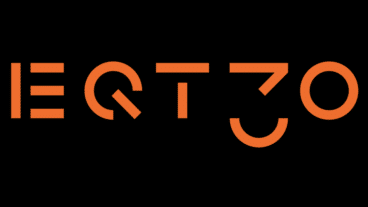The music industry is dominated by the three major labels who together represent close to 70% of the industry’s revenue (UMG 32%, Sony Music 21% and Warner Music Group 16%). More importantly, streaming services such as Spotify need the music content from all major labels, missing one makes the service incomplete. Hence, each label has a monopoly on their music recordings. No matter which streaming service wins in the future, each of the labels’ recordings are a must-have. As the largest label, UMG benefits from economies of scale. They also have the best track record in breaking through the next big artists. Their artists consistently take the top spots in various rankings. This not only led UMG to outgrow the other labels; it also makes them the first choice for many upcoming artists, a source of future income.
The role of a music label is to discover, sign and help artists launch a successful career. The label makes all the required investments in developing the artist, the related marketing, promotion and distribution expenses. In return, the label receives the copyrights to typically 4-5 albums. These copyrights generally last for 70 years after the artists’ death. Labels license these rights to streaming services and (social) media, and by selling physical copies. Labels typically share ~15-25% of revenue with the artists.
Streaming is the primary growth driver for UMG. Since 2015, streaming revenue grew at ~25-30% per year. It went from 19% of UMG’s revenue to more than 65% today. Labels license their music rights to streaming services on a revenue-share agreement. Collectively they receive around 65% of a streaming service’s revenue that is split based on the listening share. Since UMG’s music recordings represents 32% of music streamed, UMG receives ~21% (65% × 32%) of the streaming service’s revenue. Not only did streaming revitalize the music industry, it also improved the quality of UMG’s earnings as it shifted the historically hit-driven business model towards a recurring subscription one. Even if we enter a recession, we suspect that the majority will not cancel their €10 per month music subscription.
We believe we are still in the early innings of the streaming adoption curve. Today, only 11% of global and 34% of developed market smartphone users have a music streaming subscription. Next to streaming subscriber growth, music is vastly under monetized. While video streaming services like Netflix raise their prices on average by 6-8% per year, Spotify kept their price flat at €10 per month since 2013. Other major music streaming services such as Amazon Music and Apple Music started raising prices for the first time in 2022. Spotify repeated many times that they will raise their prices as well. This could usher in a series of price hikes, similar to Netflix in 2014. UMG benefits directly as they receive a percentage of the streaming services’ revenue. Since it requires no additional costs, aside from the 15-25% artists’ royalty share, price increases come at very high margins for UMG.
Valuation
UMG guides for high-single-digit organic revenue growth and margins to expand from 21% to mid-twenties over the medium-term. This leads to low-teens earnings growth. Adding the above-mentioned potential price increases could raise earnings growth to the mid-teens. UMG trades at 21x expected 2024 earnings. They convert 100% of earnings into free cash flow, allowing them to pay a 2.5% dividend yield, acquire music rights collections and repurchase shares. We consider this an attractive valuation for a unique business with good growth prospects, low cyclicality and modest financial leverage.
Risks
One of the main risks to the thesis is that the streaming adoption is already higher than we believe. So far, the data does not indicate this. We only have to look at Scandinavia, home of Spotify and the earliest adopters of paid music streaming services, where penetration rates are already at 56% and still growing. The adoption trend in developed markets are similar to Scandinavia, but a few years behind.
Another risk is that streaming lowers the barriers to entry, opening the door to new competition. However, it also raised the barriers to succeed. There are more than 100 thousand new recordings uploaded to Spotify every day. Hence, it’s increasingly difficult to cut through the noise. Labels have experience, connections with music producers and distribution partners, and data that improve an artists’ chance of success. Moreover, more than 60% of revenue is generated by music that is three years or older, benefiting the incumbent labels.
ESG
While UMG’s business model does not expose itself to many emissions; UMG is committed to reduce its impact on the environment by lowering the emissions related to their supply chain and buildings. UMG aligns with the UN Sustainable Development Goals and the Carbon Disclosure Project and will produce concrete GHG-emission reduction targets later this year.







